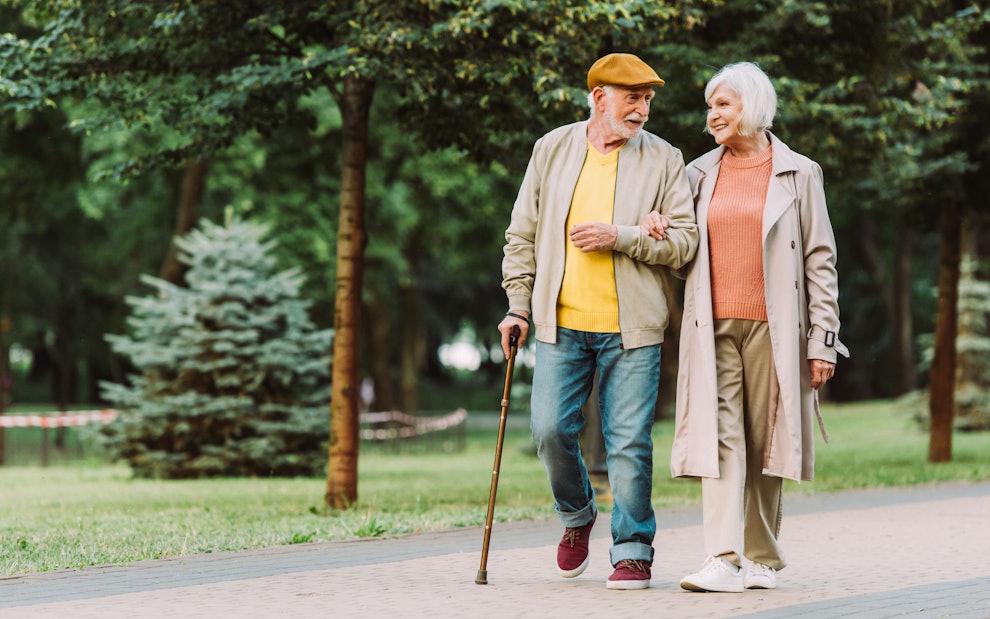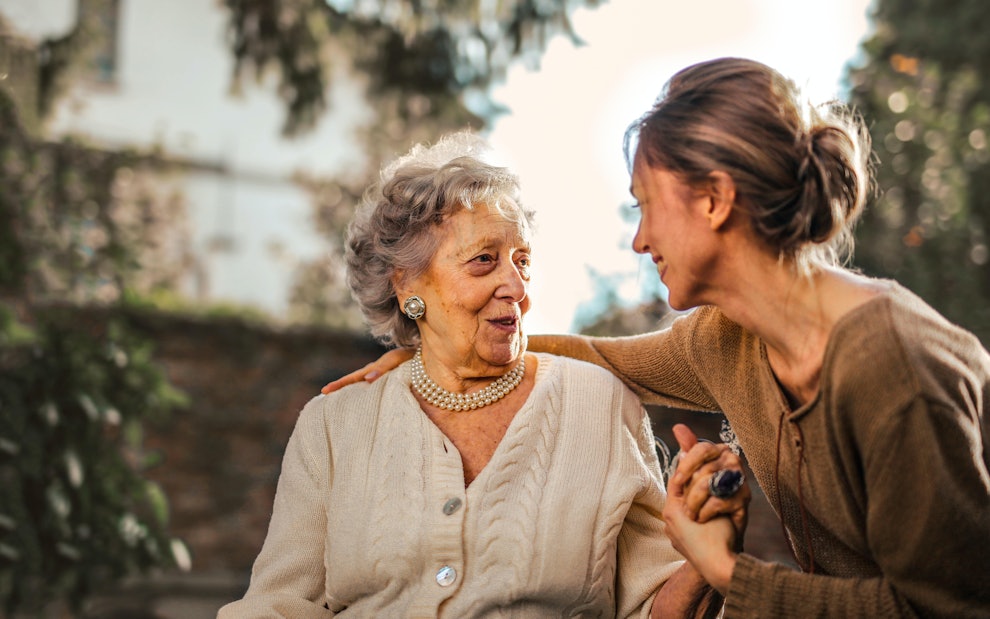Article at a glance
- As adults age, there can be less of an opportunity to remain connected and social with their peers.
- Social activity and engagement are shown to have positive health benefits, including longer life spans, fewer diseases, and greater satisfaction of quality of life.
- There are plenty of activities seniors can become involved in that contribute to their physical and mental health, including events at senior centers and senior living communities.
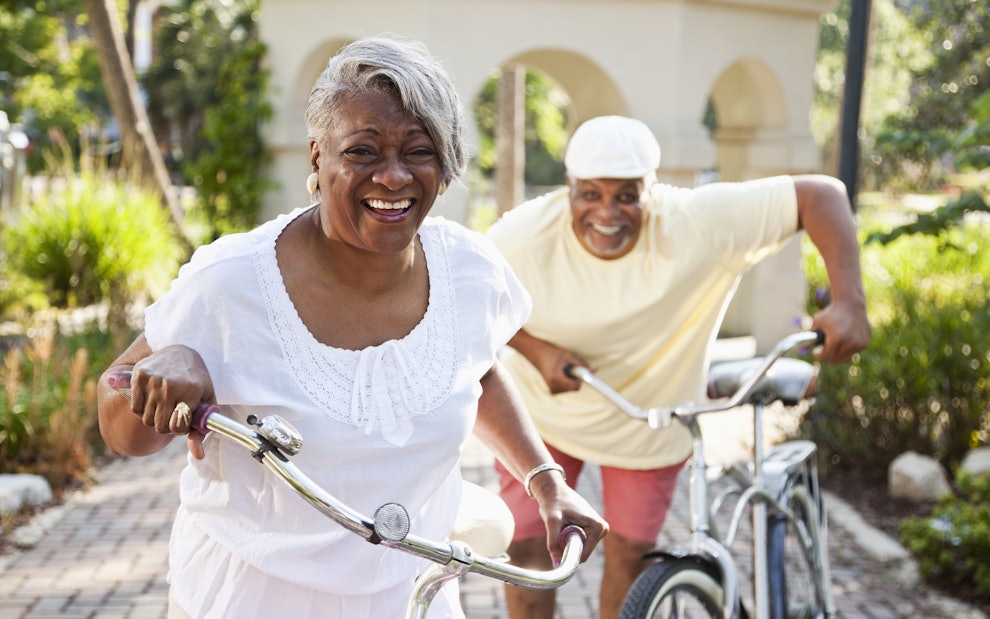
As people age, the opportunities for social activities and participation in social engagements often become less available. For older adults who live alone or don’t have close connections to family, it becomes easy for them to become socially isolated which has an impact on their emotional well being and overall health. Luckily, there are a wide variety of ways for seniors to get socially involved in ways that feel organic to them and their lifestyle.
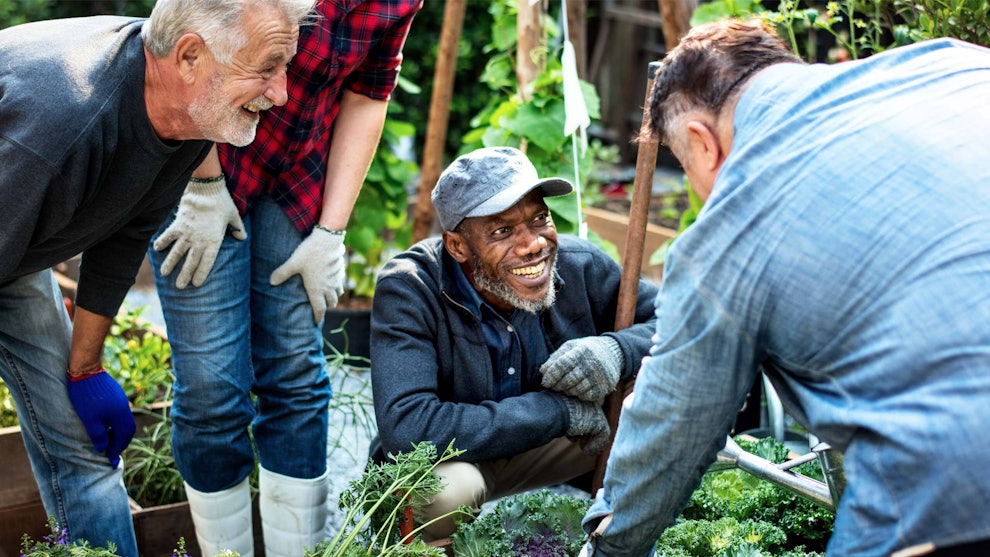
Benefits of Social Engagement for Seniors
Participating in social activities has multiple benefits for older adults, including mental and physical health benefits, as well as a stronger sense of involvement in their own life. Here is a closer look at ways staying socially active benefits seniors.
Less Likely To Develop Diseases
Studies have shown that seniors who stay socially active are less likely to develop certain diseases, most notably dementia, strokes, and even heart disease.
Potentially Longer Lifespan
Studies have also shown that older adults with more social ties and who remain socially engaged have longer life spans as opposed to those who do not.
Improves Cognitive Skills
Participating in certain activities while interacting with others can help prevent or lessen cognitive decline. Some studies have shown social engagement can help prevent diseases such as Alzheimer’s.
Better Overall Mental Health
Seniors who have plenty of social activity have been known to experience lower levels of depression and an overall improvement in their mental well-being. Emotional health and a sense of purpose also seem to increase in active seniors.
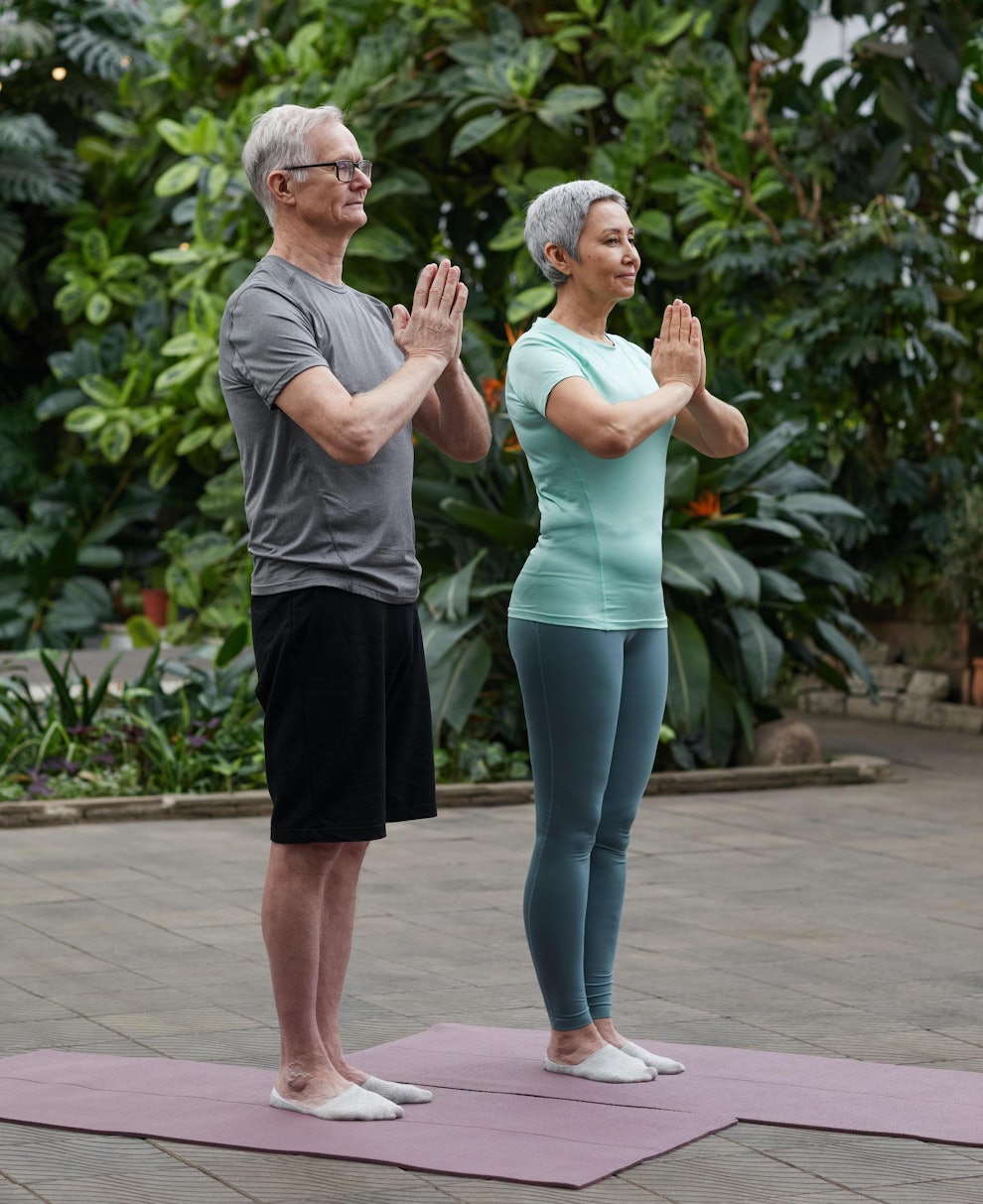
Difficulties in Getting Seniors to Socialize
Unfortunately, it can be difficult for seniors to socialize or remain socially active for a few reasons, including:
Poor Health
Older adults may be diagnosed with or experience poor health in both physical and mental capacities, making it harder to participate in social activities.
Family Barriers
In some cases, a lack of family engagement or support from a caretaker could hinder seniors from engaging in social situations, especially for older adults who struggle with decision capabilities. Families or caretakers who aren’t actively involved in or willing to help older adults often provide a barrier for seniors, even if unintentionally.
Fatigue/Tiredness
It’s not uncommon for older adults to experience higher levels of fatigue, and for many, this can contribute to a lack of staying socially engaged.
Not Enough Opportunities/Lack of Facilities
Some older adults may live in areas where social activities for seniors aren’t a high priority, and therefore have fewer opportunities to find events. Others may simply be unaware of activities they can engage in, or they live in a space where there aren’t proper facilities for social activities to thrive.
How to Encourage Seniors To Get Involved in Social Activities
Create Easy, Attainable Options
For seniors who experience health problems or have limited access to travel, it’s important to have easy, attainable options available for socializing. Some great examples of places to look into include:
Senior living communities
Senior centers
Libraries
YMCA
Volunteer Organizations
Retirement Communities
Encourage Family Involvement
While not all senior adults may have close family connections, for the ones that do, family involvement can play a significant role in encouraging social involvement. Whether it’s through regular visits with family members, going to the park with young kids, or simply accompanying seniors on outings, they are more likely to be involved when surrounded by people they know and trust.
Have a Trusted Health Professional Suggest Options
Speaking of people they know and trust, if a senior has a trusted healthcare professional who has been involved in their care for years, having them suggest socialization could potentially play a positive role in their involvement.
Take Things One Step At a Time
In some cases, older adults are often too tired to regularly engage in certain social activities. Working out a consistent, yet reasonable, schedule can help ease the burden of feeling overwhelmed. Planning to attend two events each month or engage in a short activity once a week can be a way to start small and build up excitement for the activity without completely draining them.
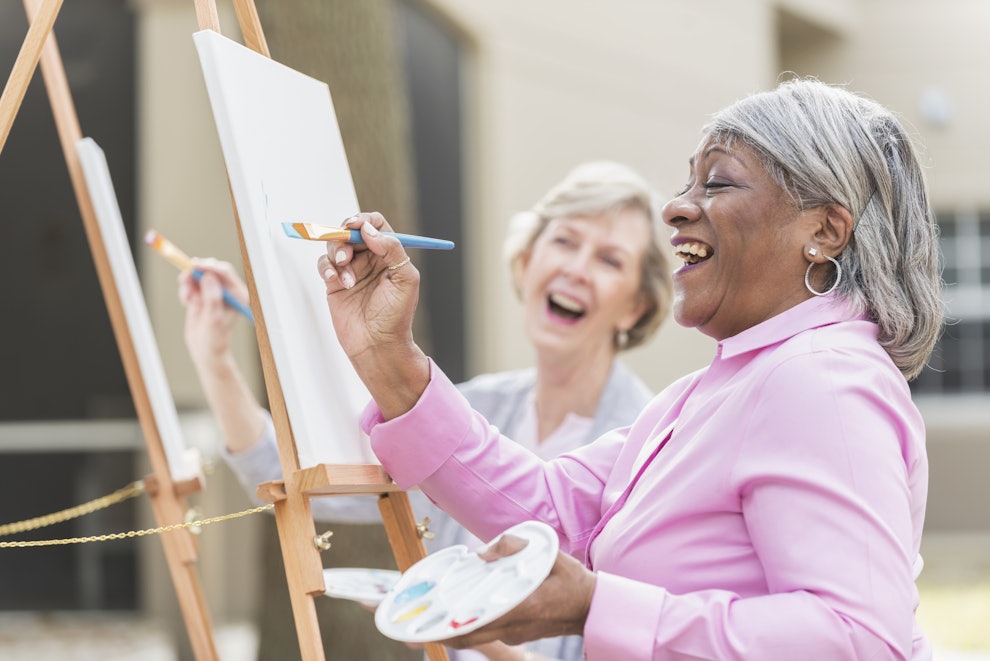
Social Activities for Seniors
There are plenty of fun activities that seniors can participate in that also promote healthy habits, including:
Taking an Educational Class
Plenty of community centers, local colleges, and senior living communities offer educational programs and classes that older adults can participate in. Learning new skills is not only beneficial for mental stimulation but can connect them with other like-minded people to spend time with.
Joining a Book Club
Joining a book club can help facilitate discussions and allow older adults to experience new perspectives as opposed to reading a book on their own. Additionally, plenty of books come in larger prints or have audiobook options for those who have trouble seeing/hearing, yet still want to participate.
Joining Exercise Class
Exercising at any age is often easier when participating in a group—it’s no different for seniors. Physical fitness is incredibly important as we age and joining an exercise class not only increases these physical health benefits but can also provide support and accountability to keep going.
Taking a Gardening Class
Gardening is a great way for seniors to relax while still getting a good amount of physical activity. Some senior centers have gardening classes that can promote older adults to remain socially engaged while participating in their favorite hobby.
Going to Music/Art Events
Music and art have both been shown to have positive effects on older adults—adding a social component can potentially have a greater impact. Whether touring an art museum, joining a local choir, or taking an art class, there are plenty of creative activities to work with that also provide opportunities to engage with others.
Trying Pet Therapy
Pet therapy and ownership have been shown to have great outcomes and effects on older adults, including:
- lower blood pressure
- less loneliness and more social support
- overall higher quality of life satisfaction
- lower rates of depression
Playing Board Games/Puzzles
Board games and puzzles can be low-impact activities that allow seniors to interact with each other without too much pressure. Board game nights can help foster a sense of community without too much hassle involved.
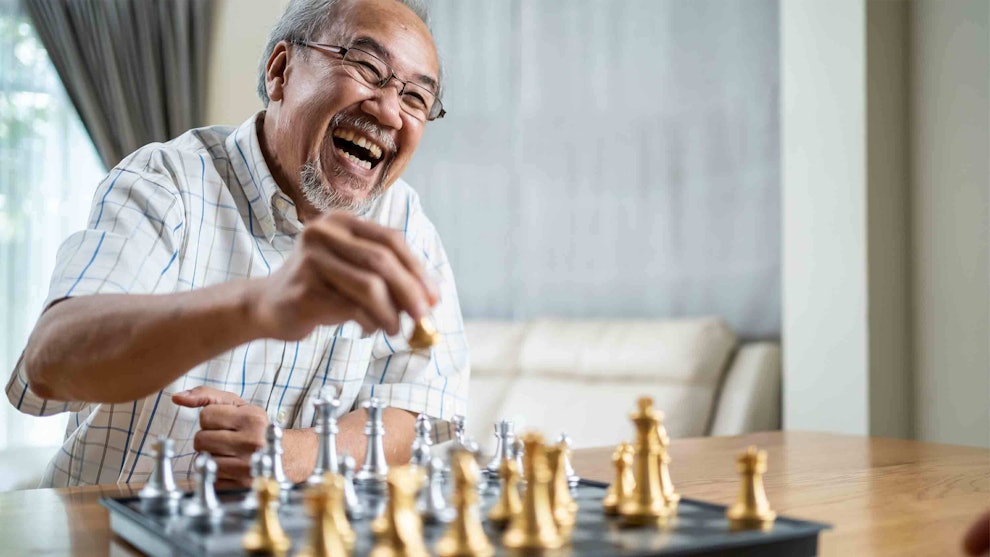
FAQ
How do you fight loneliness in old age?
Loneliness is a hard thing to overcome and it can become more prevalent as we age. Getting involved in community activities, classes, or workshops is a great way to make a new friend and overcome the isolation you’re experiencing. For more information on fighting loneliness while aging, visit this resource.
Sources
- https://www.gov.mb.ca/seniors/publications/docs/senior_centre_report.pdf
- https://www.nia.nih.gov/health/participating-activities-you-enjoy-you-age
- https://pubmed.ncbi.nlm.nih.gov/27976621/
- https://pubmed.ncbi.nlm.nih.gov/28977373/
- https://pubmed.ncbi.nlm.nih.gov/34336761/
- https://www.frontiersin.org/articles/10.3389/fpubh.2021.659263/full
- https://www.ncbi.nlm.nih.gov/pmc/articles/PMC5399821/
- https://books.google.com/books
- https://www.seniorlivinglink.org/articles/senior-living-blog/post/how-to-run-a-book-club-for-seniors
- https://www.cdc.gov/nccdphp/sgr/olderad.htm
- https://www.betterhealth.vic.gov.au/health/healthyliving/gardening-for-older-people
- https://www.nia.nih.gov/news/participating-arts-creates-paths-healthy-aging
- https://www.ncbi.nlm.nih.gov/pmc/articles/PMC5573436/
- https://www.ncbi.nlm.nih.gov/books/NBK83766/
- https://www.ncbi.nlm.nih.gov/pmc/articles/PMC6778491/
- https://www.ncbi.nlm.nih.gov/pmc/articles/PMC3604902/
- https://bmcpublichealth.biomedcentral.com/articles/10.1186/s12889-019‑7841‑7
- https://www.seniorcenterdirectory.com/
Become a patient
Experience the Oak Street Health difference, and see what it’s like to be treated by a care team who are experts at caring for older adults.



